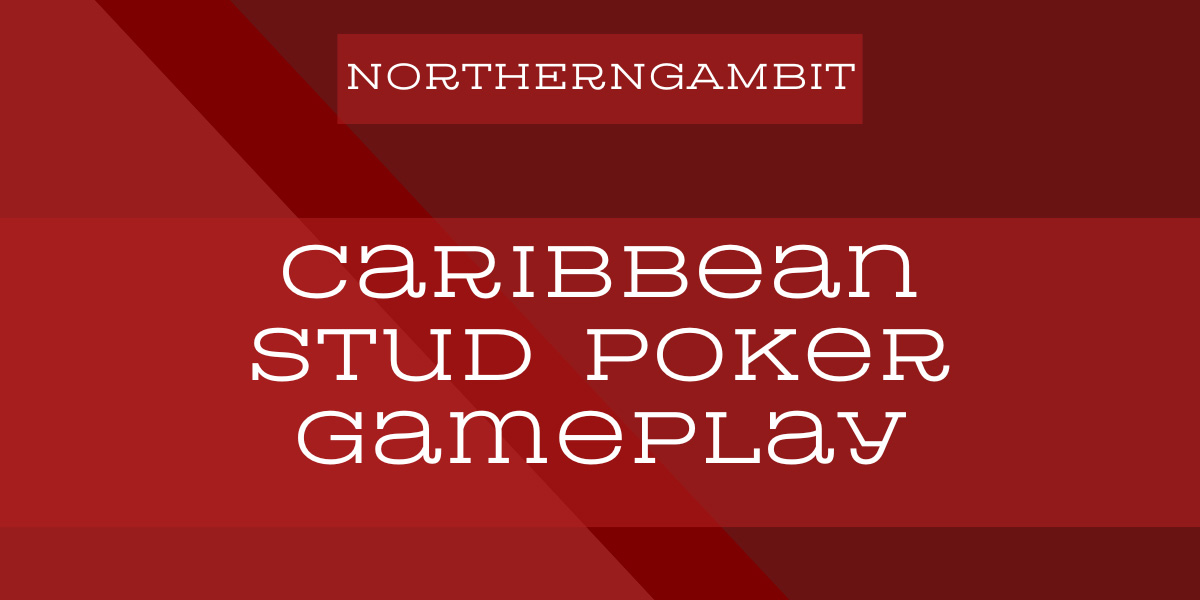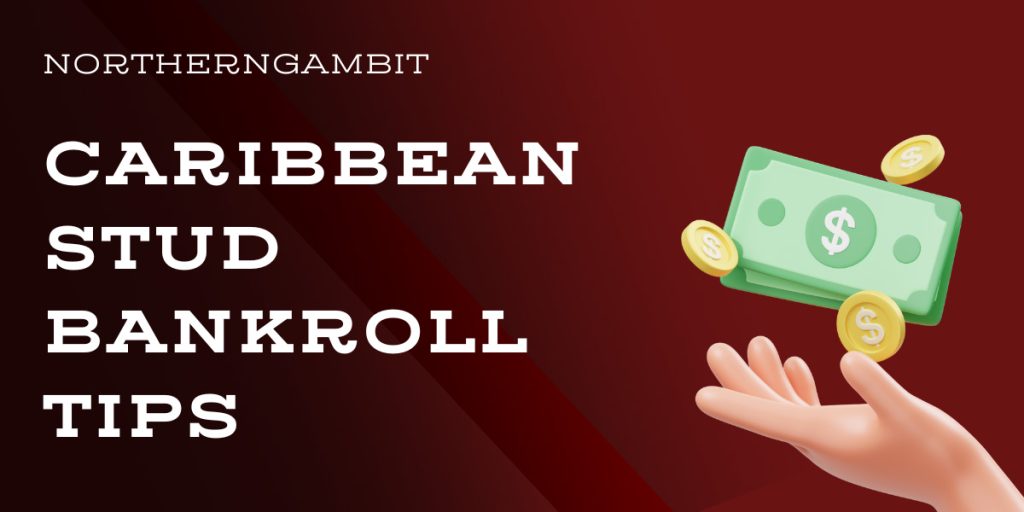
If you’re new to Caribbean Stud Poker, you may find this classic game both exciting and intimidating. However, by understanding a few key concepts, you’ll quickly get the hang of gameplay and rules.
This five-card poker variant sees you compete one-on-one against the dealer in hopes of securing the strongest poker hand. While subject to change, certain strategic decisions can sway the odds in your favor. Success requires wit as much as luck.
When first sitting down at the feet, take time to grasp essential gameplay elements. We’ll explore core mechanics momentarily. You’ll also want to grow comfortable with hand rankings, payout scales, and other dynamics we detail further below.
While momentarily daunting, Caribbean Stud Poker delivers an accessible and entertaining experience to novice and veteran players alike. Let’s unpack exactly how this casino classic is played.
The Roots of Caribbean Stud Poker
Caribbean stud poker has an intriguing history intertwined with casino gaming innovation. While details remain uncertain, most accounts suggest this poker variant emerged within beachside gambling halls of the Caribbean during the 1980s.
The tropical locale and seaside flair infused the gameplay with an escapist quality that fueled popularity. Yet as a proprietary table game owned by gaming manufacturer Shuffle Master Inc., Caribbean Stud Poker found appeal beyond island casinos.
Through licensing agreements, the game spread to gambling centers across Europe and North America during the 1990s and 2000s. From Monte Carlo to Macau, you’ll now find Caribbean Stud Poker among staple table offerings.
As a blend of five-card stud and standard poker hand hierarchies, Caribbean Stud Poker manages to feel familiar yet unique. These qualities, paired with fast-paced game flow and high payout potential, fuel enduring interest from novice and veteran players alike.
Mastering Caribbean Stud Poker Gameplay
While containing nuance, Caribbean Stud Poker follows a straightforward set of rules guiding play:
- To begin each round, players make an Ante bet and receive 5 facedown cards from a standard 52-card deck.
- Analyzing your hand without revealing it, you decide whether to Fold and forfeit the Ante, or Call by placing a Bet wager equal to twice the Ante.
- The dealer then reveals their 5 cards only if their hand is Ace-King or greater. If not, all players receive a 1:1 Ante payout.
- With the dealer’s cards shown, outcomes are decided:
- If your hand outranks the dealer’s, you receive a Payout on your Bet wager
- If the dealer prevails, both the Ante and Bet are lost.
- Payouts range from 1:1 for a Pair up to 100:1 for a Royal Flush. The highest hand wins.
The Importance of Ante Wagers
In Caribbean Stud Poker, the Ante bet fuels every round of play. By staking this initial wager, you fund the hand and retain involvement until deciding to fold or raise the bet.
The Ante injects both risk and possible reward. Its relative value often falls between $5-$25 per round. When compelled to fold with a weak hand, the Ante is surrendered. However, if the dealer cannot qualify with Ace-King or better, the Ante pays out 1:1 regardless of your actual cards.
This means that even with a worthless hand, you can recoup the Ante when the dealer fails to meet the minimum strength. It creates two paths to profit: secure a robust hand that outranks the dealer, or hope they cannot open their cards at all.
Understanding the dynamics of Ante payouts, risk scenarios, and the option to later Raise your stake provides a strategic imprint. Mastering this interplay proves vital for optimizing gameplay and managing bankroll swings.
Crafting an Initial Caribbean Stud Strategy

As a novice, adhere to a basic Caribbean Stud Poker strategy founded on hand strength:
| When Dealer Shows: | Suggested Play with Hand of: |
| Any card | * Fold with less than a pair* Call with one pair or better |
| Ace or King | * Fold with one pair* Call with two pairs or better |
| Queen or lower | * Call with one pair |
When Dealers Qualify to Play
A key dynamic within Caribbean Stud Poker sees the dealer need to hold Ace-King or stronger to open their hand. If unable to, all players receive a 1:1 payout on ante bets. You’ll want to understand the qualification scenarios:
- Dealers require at minimum Ace-King offsuit, Ace-Queen suited, King-Jack suited, or better to qualify
- With less than Ace-High, the dealer folds without exposing cards
- Players receive a 1:1 ante payout when the dealer does not qualify
- The chance to win on ante bets alone provides the strategic incentive
Payout Scales and Hand Hierarchies
Succeeding at Caribbean Stud Poker requires mastering standard hand rankings and associated payouts. While rules dictate the dealer must qualify to play, eventual outcomes follow traditional poker hand classifications:
| Hand | Payout |
| Royal Flush | 100:1 |
| Straight Flush | 50:1 |
| Four of a Kind | 25:1 |
| Full House | 10:1 |
| Flush | 6:1 |
| Straight | 5:1 |
| Three-of-a-Kind | 3:1 |
| Two Pairs | 2:1 |
| One Pair | 1:1 |
Breaking Down Winning Hand Combinations
When competing against the dealer in Caribbean Stud Poker, these winning hands offer payout potential:
- Royal Flush: The highest straight flush possible, consisting of the Ace, King, Queen, Jack, and 10 of a single suit. Extremely rare but pays up to 100:1.
- Straight Flush: Any five consecutive cards of the same suit. A rarer hand that starts from 10-high up, paying 50:1.
- Four of a Kind: Also known as quads, it includes four cards of matching rank along with one unrelated side card. Pays 25:1.
- Full House: Contains three cards of one rank plus two cards of another rank. Pays 10:1 based on combined strength.
- Flush: Any five cards of the same suit without sequential ranking. Beats all non-flushes at a 6:1 rate.
Employing Key Caribbean Stud Tactics
To optimize gameplay, utilize these how-to-play Caribbean Stud Poker strategies:
- Raise with any pair or better when holding a robust hand with winning potential. Additional bets yield higher payouts.
- Fold worthless low cards instead of calling bets when the dealer shows an Ace or King. Only call marginal hands against dealer weakness.
- Refer frequently to the payout chart when judging hand strength versus required bets. Understand value ratios.
- With Ace-King suited or better, consider raising with an ace or king as one of your side cards, creating added flush and straight potential on later streets.
- When enduring a cold streak personally, wager higher ante bets relying upon potential dealer non-qualification. This provides rebate protection.
Chasing Progressive Jackpots
While the base game presents ample winning potential, some Caribbean Stud Poker variants allow chasing progressive jackpots for life-changing scores.
These escalating pools will be labeled “Caribbean Stud Progressive” at host casinos. By making an additional side wager, you gain eligibility toward the incrementing bounty.
The jackpot meter continues rising until a player at that casino hits the ultimate winning hand of a Royal Flush. At that moment, the progressive payday transfers in full before resetting to a predetermined seed amount.
Payouts scale lower for other premium hands like Straight Flushes. But the prospect of bagging a progressive at upward of $100K+ fuels immense anticipation.
When available, progressives inject high-variance prospects into the normal ebb-and-flow of Caribbean Stud Poker. Just be wise when budgeting additional side bets during each round so as not to overextend limits.
Caribbean Stud Bankroll Tips

When playing Caribbean Stud Poker, responsible bankroll management proves vital. Adhere to these tips:
| Bankroll Strategy | Description |
| Set a budget | Determine a set amount you can afford to risk before playing and stick to it |
| Limit Total bets | Keep cumulative ante bets plus call wagers within a small percentage of your budget |
| Secure winnings | When securing a big payout, withdraw a portion to lock in profits |
| Take breaks | Step away temporarily when enduring major swings up or down |
| Set stop losses | Cease play for the session if losses exceed a predetermined threshold |
Selecting Optimal Casino Environments

When playing Caribbean Stud Poker, consider these attributes when choosing where to play:
- Seek reputable licensing and certification from respected regulators like the Malta Gaming Authority or the UK Gambling Commission
- Review payout percentage audits for Caribbean Stud games across casino options to pinpoint higher RTPs
- Look for variants like Progressive Caribbean Stud to unlock jackpot chasing potential
- Ensure mobile compatibility so that you can take the action with you on smartphones and tablets
- Check if live dealer Caribbean Stud games exist for heightened realism and engagement
Exploring Caribbean Stud Variants
Beyond classic rules, you may encounter creative Caribbean Stud Poker spins including:
| Variation | Description |
| Progressive | Chance to win an ever-rising progressive jackpot for hitting the top-hand |
| Bonus | Allows optional bonus bet that pays if achieving a higher hand than the dealer |
| Double Bonus | Features both progressive jackpots and bonus bets at the same time |
| Double Action | Option to double the ante bet after seeing your cards for higher stakes |
| Multi-Bet | Ability to place ante bets on multiple betting spots up to a maximum per round |
Final Thoughts for Caribbean Stud Players
- As you navigate gameplay concepts, strategy nuances, and available variants for Caribbean Stud Poker, remember several guiding tips:
- Use optimal basic strategy as a decision-making blueprint until mastering advanced tactics
- Manage your bankroll meticulously by setting loss limits and securing periodic profits
- Only play Caribbean Stud Poker at regulated online or live casinos boasting proper licensing
While subject to swings, Caribbean Stud Poker’s fast action and high payout ceiling channels immersive excitement for poker traditionalists and casual fans alike. Approach with responsible practices, and the entertainment value proves well worth the ride.
You will be interested in: Video Poker Mastery: Canadian Edition






